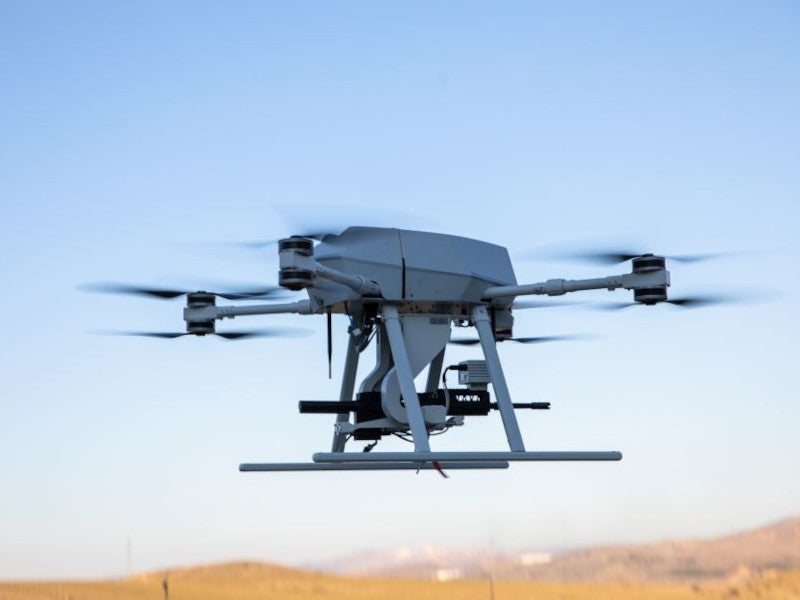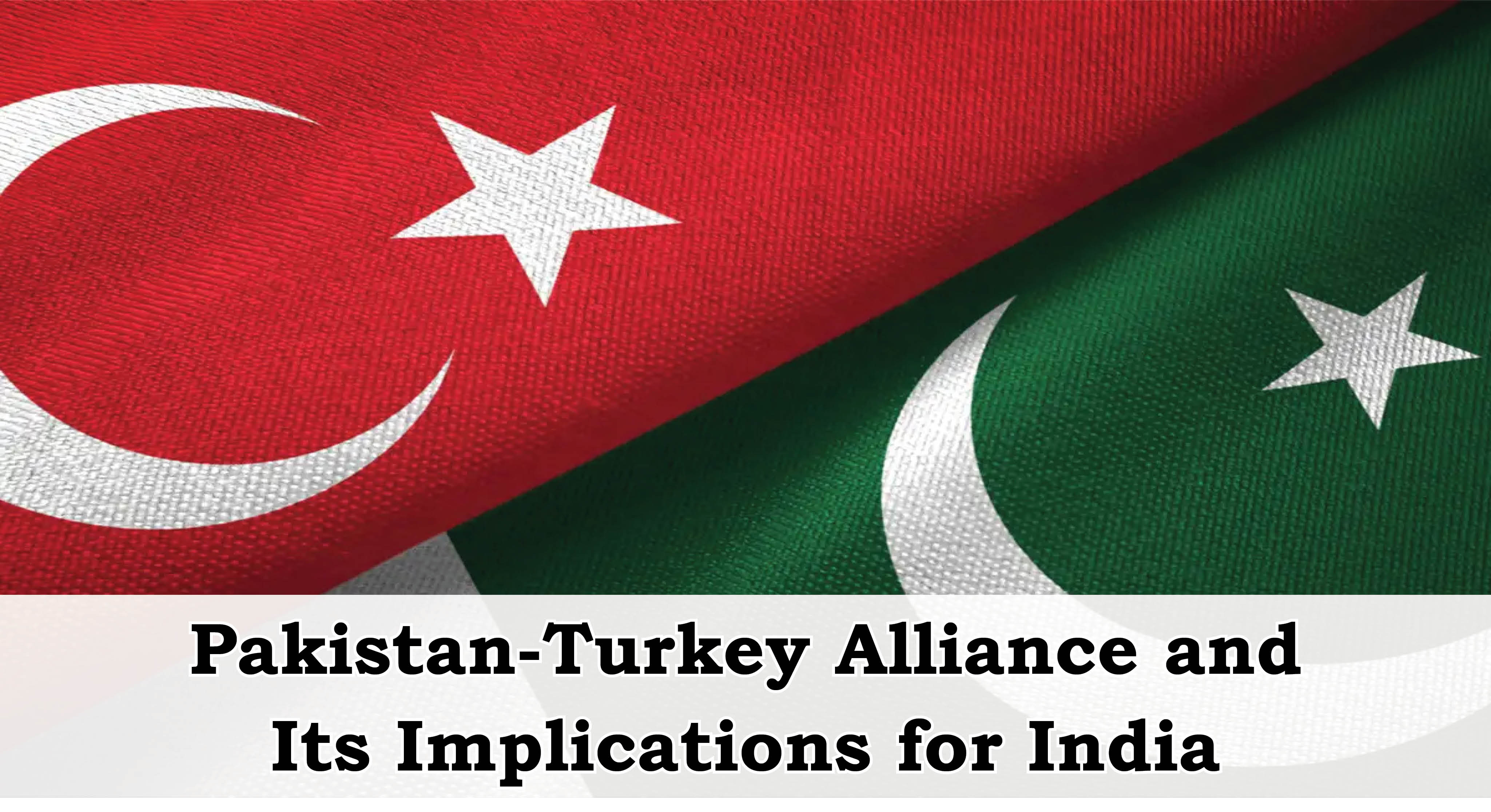The recent attempted drone attack by Pakistan on India’s western front, allegedly using Turkish-made drones, has reignited concerns over the deepening military and geopolitical ties between Islamabad and Ankara. This incident underscores the multifaceted relationship between the two countries—rooted in shared ideology, historical cooperation, and mutual strategic interests—and highlights the implications for India’s national security and regional posture.
Turkey-Pakistan Military Nexus: A Historical and Ideological Alliance:
The Pakistan-Turkey relationship is anchored in a shared Islamic identity and a history of military and diplomatic cooperation. During the Cold War, both countries were part of the Central Treaty Organization (CENTO) and the Regional Cooperation for Development (RCD), facilitating bilateral and trilateral ties in security and economic spheres.
This bond strengthened significantly under the leadership of Recep Tayyip Erdogan, whose political Islamism has aligned ideologically with Pakistan’s strategic worldview. Erdogan has visited Pakistan at least 10 times since 2003, co-chairing strategic summits like the Pakistan-Türkiye High-Level Strategic Cooperation Council, which underscores institutional depth in the relationship.
Rising Defence Cooperation and Arms Trade:
In recent years, defence ties between Turkey and Pakistan have become a cornerstone of their partnership. Turkish arms exports surged by 103% between 2015–2019 and 2020–2024, as per the Stockholm International Peace Research Institute (SIPRI). By 2020, Turkey became Pakistan’s second-largest arms supplier after China.
Key developments in the Turkey-Pakistan defence axis include:
- Joint Exercises and Technology Transfers: Pakistan and Turkey have significantly expanded defence cooperation through institutional mechanisms, joint military exercises, and major arms deals.
- Pakistan has acquired Bayraktar TB-2 drones, Kemankes cruise missiles, and Asisguard Songar armed drones from Turkey.
- A $1 billion deal in 2018 secured four new-class corvettes from STM Defence Technologies, while Turkish firms are also upgrading Pakistan’s Agosta 90B submarines, bypassing the original French manufacturer.
- Collaborative Platforms: Pakistan’s National Aerospace Science and Technology Park (NASTP), inaugurated in August 2023, has entered a research and development collaboration with Turkish drone manufacturer Baykar.
- Procurement Records: According to the Stockholm International Peace Research Institute (SIPRI), Pakistan acquired three Bayraktar TB-2 armed drones from Turkey in 2022.
- Fighter Jet Collaboration: The Pakistan Air Force (PAF) continues to receive upgrades and deliveries of F-16 jets from Turkish Aerospace Industries.
The Geopolitical Implications for India:
Turkey’s unequivocal support for Pakistan on the Kashmir issue has long irked India. Ankara’s positions have frequently mirrored Islamabad’s narrative in international forums. For instance, in February 2025, Erdogan reaffirmed Turkey’s solidarity with the "Kashmiri brothers," prompting a diplomatic protest from New Delhi.
India has responded to the Pakistan-Turkey axis with calibrated counter-alignments:
1. Support to Cyprus and Greece: India’s engagement with the Greece-backed Republic of Cyprus contrasts sharply with Turkey’s support for the breakaway Turkish Republic of Northern Cyprus. Greece, in turn, supports India’s position on Kashmir.
2. Strategic Partnership with Armenia: India has emerged as Armenia’s largest arms supplier, overtaking Russia. This move aligns India against the Pakistan-Turkey-Azerbaijan triad, especially following Pakistan's $1.6 billion fighter jet deal with Baku.
3. Middle East Engagement: India’s deepening relations with Saudi Arabia and the UAE, both traditional Pakistani allies, have created new regional equations. These Gulf states have distanced themselves from Pakistan's stance on Kashmir, unlike Turkey.
4. Exclusion of Turkey from IMEC: The India-Middle East-Europe Economic Corridor (IMEC) strategically bypasses Turkey, weakening its traditional role as a bridge between Asia and Europe. This has prompted Ankara to propose an alternate "Iraq Development Road" project.
Recent Incident: Drone Warfare and Strategic Ramifications:
- India recently repelled a coordinated drone attack by Pakistan targeting 36 sites, using over 300 Turkish-origin drones. Forensic analysis has preliminarily identified these drones as Asisguard Songar models, signaling covert procurement or transfer mechanisms.
- The proximity of a Turkish Ada-class anti-submarine corvette to Karachi port (May 2) and a C-130 Hercules military transport aircraft’s arrival in Pakistan (April 27) further raise questions about Turkey’s material support to Pakistan’s military capabilities.
- Though Turkey denies these were arms transfers, the pattern fits within the broader context of Turkish military enablement of Pakistan.
The Songar Drone System:
The Songar drone is Turkey’s first domestically produced armed drone, designed to support low-intensity conflicts. It is operational within the Turkish Armed Forces (TAF) and has now emerged as part of Pakistan's growing defence toolkit.
Key features of the Songar drone include:
- Dimensions and Payload: Rotor width of 145 cm, height of 70 cm, and a maximum take-off weight (MTOW) of 45 kg.
- Ammunition: Equipped with a NATO-standard 5.56x45mm machine gun, with a capacity of 200 rounds. The firing mechanism supports both single-shot and 15-round burst modes.
- Navigation and Communication: Operates on GPS and GLONASS navigation systems. It supports real-time video transmission, video recording, and post-mission analysis.
- Cameras and Sensors: Integrated with two cameras, including a 10x zoom pilot camera and a gun-mounted camera. Infrared night sensors allow night-time operations within a 10 km range.
- Operational Range: Has a maximum communication range of 3 km and an altitude ceiling of 2,800 m above mean sea level, with operational accuracy within 15 cm at a 200 m range.

The Broader Strategic Shift:
India and Pakistan are increasingly aligned with divergent international blocs. The United States, once a close partner to Pakistan, has pivoted decisively toward India through its Indo-Pacific Strategy, where Pakistan finds no mention. Conversely, India features prominently as a regional pillar in U.S. strategic frameworks.
Simultaneously, Turkey’s growing militarism and antagonistic stance toward India—unmoved even by Indian humanitarian aid during the 2023 Turkish earthquake—highlight the enduring influence of its alignment with Pakistan.
Conclusion:
The deepening Turkey-Pakistan strategic partnership, characterized by robust military cooperation, shared ideological alignment, and geopolitical coordination, poses a long-term challenge to India’s regional interests and security architecture. India's evolving responses—through Eastern Mediterranean partnerships, defence diplomacy with Armenia, and strategic economic corridors—reflect a calibrated counterstrategy.
Going forward, India’s engagement must remain nimble, multi-vector, and anchored in strengthening ties with both regional and global partners who share its vision for a stable, rules-based international order.
| Main question: Discuss how India's partnerships with Greece, Armenia, and Middle Eastern nations serve as a strategic counterbalance to the Turkey-Pakistan axis. |








